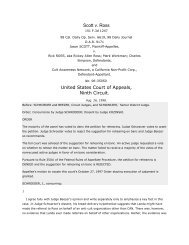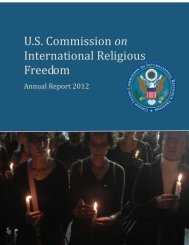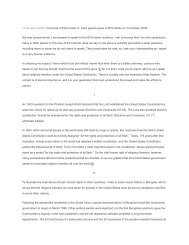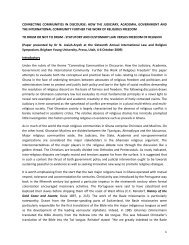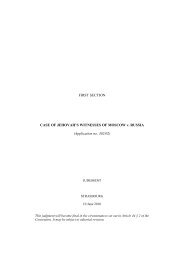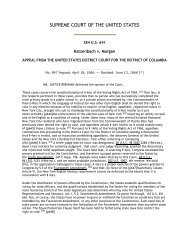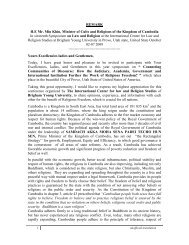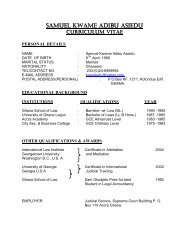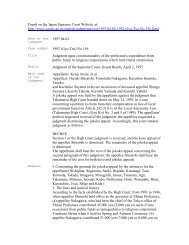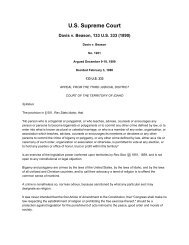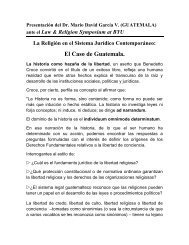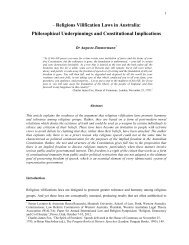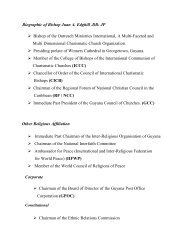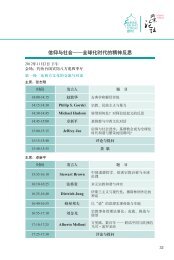Ruling (.pdf) - International Center for Law and Religion Studies
Ruling (.pdf) - International Center for Law and Religion Studies
Ruling (.pdf) - International Center for Law and Religion Studies
Create successful ePaper yourself
Turn your PDF publications into a flip-book with our unique Google optimized e-Paper software.
whole. Section 24(2) imposes a duty to accommodate to the point of undue hardship,but only in respect of section 24(1)(b). Section 24(1)(a) is not covered by the duty toaccommodate in section 24(2). In my view this is a clear expression of legislative intentnot to require accommodation in respect of the section 24(1)(a) exemption.[170] Meiorin eliminated previous inconsistency <strong>and</strong> confusion when addressingdirect, as opposed to indirect, discrimination. But nothing in Meiorin suggests the Courtintended the unified approach should override specific statutory language, where theLegislature has turned its mind to the criteria to be used in considering the validity of arequirement or qualification.2008 HRTO 22 (CanLII)[171] Having said this, Christian Horizons cannot rely on Meiorin to modify thelongst<strong>and</strong>ing approach adopted by courts <strong>and</strong> tribunals in determining whether aqualification is reasonable <strong>and</strong> bona fide in special employment cases. ChristianHorizons argues the objective <strong>and</strong> subjective tests used to determine whether aqualification is bona fide <strong>and</strong> reasonable are similar to the first <strong>and</strong> second tests inMeiorin. This is incorrect. While the second Meiorin test is similar to the traditionalsubjective test, the first is quite different than the traditional objective test.[172] In special employment cases, courts <strong>and</strong> tribunals have adopted the two parttest first articulated in Ontario (Human Rights Commission) v. Etobicoke (Borough),[1982] 1 S.C.R. 202. Etobicoke involved the question of whether a m<strong>and</strong>atoryretirement requirement <strong>for</strong> firefighters was a bona fide occupational qualification. Thetest articulated by the Court was:To be a bona fide occupational qualification <strong>and</strong> requirement alimitation, such as a m<strong>and</strong>atory retirement at a fixed age, must beimposed honestly, in good faith, <strong>and</strong> in the sincerely held beliefthat such limitation is imposed in the interests of the adequateper<strong>for</strong>mance of the work involved with all reasonable dispatch,safety <strong>and</strong> economy, <strong>and</strong> not <strong>for</strong> ulterior or extraneous reasonsaimed at objectives which could defeat the purpose of the Code.In addition it must be related in an objective sense to theper<strong>for</strong>mance of the employment concerned, in that it isreasonably necessary to assure the efficient <strong>and</strong> economical50



